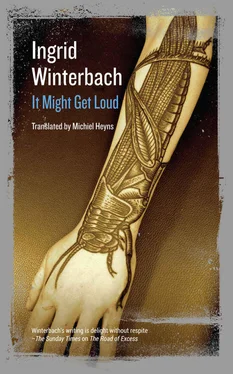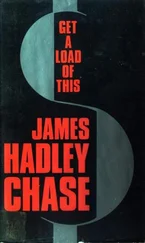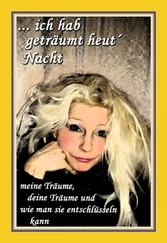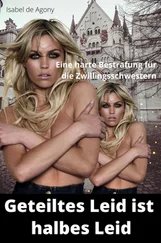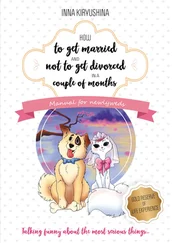And then the postcard from Cape Town. Dear sister, when next you see our father, do give him this message: his youngest daughter covets a greyhound. Oh, yesterday at Bloubergstrand we beheld the classic view of Table Mountain, floating like a lovely ship on the ocean. And in the foreground two greyhounds. The male benignly grey like wisdom itself, grey as a cloud. The noble bitch — oh Lord — benignly lustrous as a grey pearl, like a pearl-grey seabird. Their necks like the women of Modigliani the Jew, their eyes benign like the eyes of horses in the Brothers Karamazov. The highborn animals came up to me. They rested their sleek-coated skulls in my hands for a few moments. I’m pregnant again; the doctor is terminating it next week. Please do not tell our mother of this. It will upset her exceedingly. I am most grieved. I covet a greyhound, the greyhound of death. From your sister with the bad luck.
*
One of the most beautiful photographs of her sister that Maria possesses from this period was probably taken unbeknownst to Sofie. She is lighting a cigarette, she’s looking down, she’s wearing thick black-rimmed glasses and her hair, her thick, dark, exuberant hair is shoulder-length. She is entirely engrossed in her own world; she has no truck with the photographer. In her left hand she is gripping the box of matches between thumb and index finger, at the same time sheltering the flame, in her right hand she is holding the match. Strong, shapely hands (like all her limbs), graceful wrists, smallish, shell-shaped nails. Thirty years before Sofie had written that she was bequeathing her hands to Maria, so that Maria could be her terrestrial hands when Sofie was dead. Such a typical Sofie utterance: cryptic, at the same time playful — droll — and in deadly earnest.
*
Sofie’s letters gradually got fewer and fewer. She wrote more poetry. Her first volume of poetry was published, then her second. Her work met with increasing acclaim. Their intense exchange of letters ceased; limited to one or two shortish emails and text messages in the last few years, and then nothing more, in the last five months or so before her death.
*
Maria still plays cards once a week with her neighbour Susanna Croucamp. Tonight there are just the two of them. She is distracted, her heart is not in the game.
‘Did something happen during your visit to the Cape?’ Susanna enquires.
‘I visited my parents’ grave,’ says Maria. ‘A woman read my hand and another woman pelted me with clods and stones.’
‘Pelted you with stones?!’ Susanna is shocked. ‘Who was it?’ she asks.
‘I don’t know,’ says Maria. ‘I don’t know if she was targeting me specifically or if she was confusing me with someone else. I don’t think she was all there.’
‘What did the other woman read in your hand?’ Susanna asks.
‘That the dead don’t provide answers,’ says Maria.
‘So now we know,’ says Susanna.
‘Yes,’ says Maria, ‘odd that she could see it in my hand.’
Susanna says: ‘While you were away, the writer Abel Ahewu courted me.’
‘What do you mean,’ asks Maria, ‘courted as in innocently cuddling, or as in full-on physical encounter?’
‘Full-on physical encounter,’ says Susanna Croucamp (the orphan from Langlaagte).
‘And what was it like?’ asks Maria.
‘I’ve always wanted to taste the forbidden fruit,’ says Susanna.
‘And what was it like?’ Maria asks again.
‘It was exotic,’ says Susanna, ‘as I imagined it would be. But it was also a bit melancholy. Melancholy and weighty. Weighty as in heavy.’
‘He’s a big man,’ says Maria.
‘He’s also a weighty presence,’ says Susanna. ‘A burdened, troubled man. All the time while we were at it, I kept thinking of the story of his friend who was in love with the transvestite. I imagined that he was thinking of him too. He’s a considerate lover but his mind was elsewhere.’
‘Possibly with his dead friend,’ says Maria. ‘He didn’t ask you to marry him?’
‘No,’ says Susanna, ‘he didn’t ask me to marry him. I think his heart belongs to his dead friend. I think he loved him. I think he came here to take his mind off it. I think he is terrified of the magnitude of his emotions. During orgasm a sob racked his body, such as I’ve never before experienced with a man. A tremendous sob of grief.’
‘Erotic tristesse.’
‘Yes,’ says Susanna, ‘yes, something of the kind.’
‘What is his mother tongue?’ asks Maria.
‘I think he’s outgrown his mother tongue. Or abjured it.’
‘Bartered.’
‘At a great price,’ says Susanna.
‘I have a very good friend who is also from Langlaagte,’ says Maria.
‘Is he also an orphan?’ asks Susanna.
‘No,’ says Maria, ‘he has a family. His name is Jakobus Coetzee. He’s a sculptor. He’s living on a farm on a slope of Table Mountain. He refers to it as a haven for the have-nots.’
After finishing their card game, they watch an episode of Twin Peaks , Susanna Croucamp of Langlaagte’s favourite television series.
*
Maria’s other neighbour, Vera Schoonraad, shows her a letter she received from her son. They are sitting in Vera’s sitting room with the heavy red velvet curtains. They’ve been watching slides of Romanesque churches in Italy: among others the Mausoleum of Galla Placidia in Ravenna. San Vitale in Ravenna (the church that so fascinated Sofie). Sant’Ambrogio in Milan, Sant’Abbondio in Como, San Zeno Maggiore in Verona. The cathedrals of Parma, Modena and Pisa. San Clemente and Santa Maria in Cosmedin in Rome. San Miniato al Monte in Florence. Vera had pointed out something here and there — the characteristics of certain capitals, the rhythms of the arcades, the finely wrought decoration of pulpits, sanctuaries, choir screens, vestibules. The elaborately decorated facades. The classical influences. They drink their wine in silence, both of them still under the spell of what they’ve just seen.
Vera has blonde hair; a firm, straight, wide mouth; straight eyebrows like two swords crossed in combat. Outside the tropical night is sultry and close; agitated scurryings in the foliage, fruit bats in the trees, crickets, now and again a hadeda flying up screeching shrilly. Ripe mangoes now and again dropping on the roof of the summer house at the bottom of Vera’s garden. Other night birds disturbing the peace. All kinds of unidentifiable nocturnal swarmings, rustlings and stirrings. But here in Vera’s sitting room it suddenly feels very quiet.
Dear Ma, her son writes, I’m writing this letter because I feel I owe it to Ma — even though I know Ma thinks these things are claptrap, or even worse, paranoid thumb-sucking. I do not want to think one day that I neglected my duty by not keeping Ma informed or forewarned.
I furnish the facts — Ma can decide for herself what Ma wants to do with the information. As soon as Ma resolves to consider this matter in earnest (and with prayer), I’ll forward more comprehensive intelligence. For the time being I am only once again sketching the situation in broad outline, to give an indication of the gravity of the situation.
As Ma probably knows, Siener van Rensburg predicted several events that have already come to pass, as did Johanna Brandt, and the lesser-known Siener Serfontein. (Ma can google all of these.) Johanna Brandt and Siener van Rensburg both predicted a ‘night of the long knives’. It amounts to the following:
As soon as Mandela dies, there will be a country-wide strike. He will lie in state in Pretoria for seven days in a glass coffin and be buried on the eighth day. The night of his death, or his funeral (that’s the only detail that’s not altogether clear) will act as a signal for blacks to murder as many whites as possible in Johannesburg. To murder in a brutal manner, I need not elaborate, Ma is aware of what is happening in the country and what these people are capable of. Escape routes will be closed off and the electricity supply will be cut. This campaign of murder will spread from Johannesburg to Pretoria, and from there to every city and town in the country.
Читать дальше
